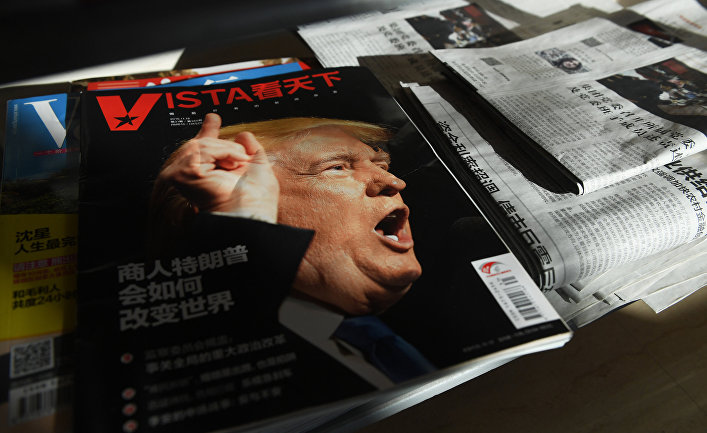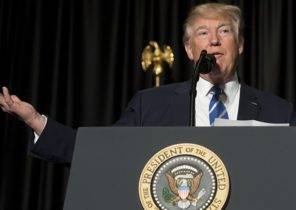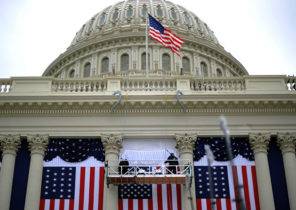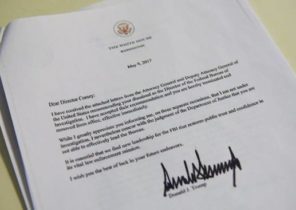
The cold war ended in December 1991 when the Soviet Union collapsed. The era that followed it, ended in November 2016, when Donald trump won the presidential election in the United States.
It is impossible to predict everything that will bring us the era of trump. This is partly due to his capricious nature. But some of the consequences of his victory are already apparent. In just a few weeks of the presidency, trump turned on the head all the key ideas on which was based the national strategy of China in the post-cold war period.
The first consideration was ideological. Indicative of the triumph of Western liberal democracy in 1989, made this system a kind of dominant. And since it was perceived as an existential threat to the Communist party of China (CPC).
In the economic sphere, China is counting on the preservation of Western leadership in the process of economic globalization. For this reason, the Chinese government developed close commercial relations with the West, which helped economic growth and development of China, strengthening, thus, support the CCP in the country, as well as Chinese influence abroad.
In the field of national security China believed that the United States is not the primary threat. Although the US and its allies have an overwhelming technical advantage (it is a reality that has long worried the Chinese government), China has taken almost as a given that the US is going to continue to try in the first place to avoid conflict.
In General, Chinese leaders have come to terms with the ambivalent nature of the American strategy of balancing, according to which America is engaged with China economically and diplomatically, but adhered to a rigid military doctrine in this country to contain its expansionism. And they developed their own strategy, the purpose of which was to ensure maximum use of the relatively peaceful environment to complete the primary tasks — achieve rapid economic development.
But now, the operational environment has changed. Moreover, the Foundation of the world order that emerged after the cold war, began to crumble long before the appearance on the stage of the tramp. Several factors, including the global financial crisis of 2008 and the strategic mistakes of America in the middle East after the attacks of 11 September 2001 led to a significant reduction in the ability of the West to support rules-based international order.
All this is not new for China, which is engaged in the gradual correction of its national strategy to seize the chances offered due to the relative decline of the West. For example, while the US was distracted by the protracted and volatile conflict in the middle East, China is flexing its muscles, testing the resolve of the mood of America. The most obvious example is the situation in the South China sea.
However, in General, all of these amendments were of a minor nature. The basic strategy remained the same. But now it is no longer an option. In the White house — trump, and therefore, a national strategy of China requires full review in accordance with a new set of assumptions.
In the sphere of ideology, China can breathe a sigh of relief. The advent of trump (as well as voting for Brakcet in the UK and the rise of the extreme right-wing populism in other European countries) is a signal of a sharp decline in the ideological appeal of liberal democracy.
But on the economic front, the new operational environment will probably be more complicated. De-globalization now looks like a reality. And it is deeply disturbing to China, the world’s largest exporter and possibly the biggest beneficiary of globalization.
Given China’s dependence on exports, even in the best scenario, the country is likely to face a fall in the rate of potential growth. But much more China worried about the bad scenarios. The economic interdependence of China and the United States plays a buffer role in their geopolitical and ideological rivalry. If trump really carry out their threat to break trade agreements and unilaterally impose prohibitive tariffs, the current regime of global trade will collapse, and one of the main victims of this will be China.
However, the most acute threats are probably related to the national security. The statements and actions of trump after the election, as well as his reputation impulsive Hama, who clearly believes that the world is a Hobbesian jungle, convinced the Chinese leadership that he cannot wait to start the fight.
Trump not only threatened to end the policy of “one China” policy, which since 1972 is the Foundation of us-Chinese relations and vowed to boost naval capacity of the United States with the Express purpose of opposing China. Trump’s flirtation with Russian President Vladimir Putin only reinforce the concerns of the Chinese leadership that the US is preparing to leave Beijing challenge.
All these new factors are defined by pointers to the way forward for China, while it develops the new national strategy. However, much remains unclear. For example, if trump decides to deal with Iran and in the end more deeply mired in the swamp of the middle East, China will be a backlash. But if trump chooses confrontation with China in the South China sea, or will abandon its policy of one China, then U.S.-China relations go into free fall, opening up the frightening prospect of a direct military conflict.
If we exclude this scenario, the arrival of trump to presidential authorities can be a signal of a new cold war, this time between the US and China. To many this may seem unthinkable. But the same seemed unthinkable and win trump’s exactly as long as it did not happen.







